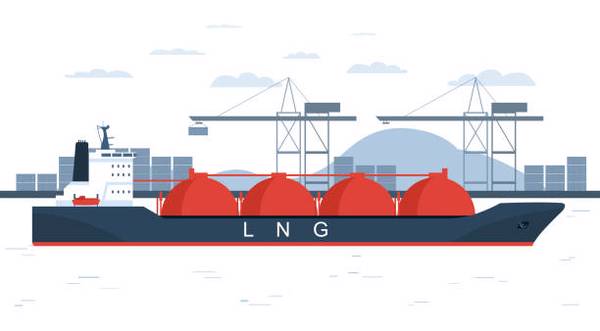Say No to LNG calls out CMA CGM and TotalEnergies for greenwashing LNG
The anti-LNG campaign has criticised shipowners and energy companies like France’s CMA CGM and TotalEnergies for “greenwashing LNG as a "clean" marine fuel.
 PHOTO: A graphic representation of an LNG Tanker. Getty Images
PHOTO: A graphic representation of an LNG Tanker. Getty Images
These allegations were made ahead of the upcoming International Maritime Organisation's (IMO) meetings scheduled for late June and early July.
The Say No to LNG campaign has bashed companies like CMA CGM and TotalEnergies for “actively promoting and greenwashing” Liquefied Natural Gas (LNG) as a ‘clean’ shipping fuel across several industries, including maritime shipping.
The campaign, which is funded by San Francisco-based ClimateWorks Foundation warns that the use of LNG in shipping could derail efforts of limiting global temperature to 1.5°C, as outlined in the Paris Agreement. However, the campaign counters that LNG can be only considered as a transitional fuel in the shipping industry’s decarbonisation pathway.
It further says that IMO should include methane emissions in its emission targets.
In their statement, Say No to LNG argues that energy giants like TotalEnergies have made “soaring profits” and shipping firms like CMA CGM have “taken advantage” of the Russia-Ukraine war and EU’s reliance on non-Russian gas by securing long-term contracts for LNG infrastructure across various sectors in the name of “energy security”.
CMA CGM has positioned LNG as its flagship “green” fuel and recently signed a ten-year agreement with TotalEnergies on the supply of LNG to fuel container ships in the future at the Port of Marseille-Fos in France.
Most LNG terminals and infrastructure will be required to address the short-term energy crisis resulting from the ongoing war in Ukraine, stated Say No to LNG.
The campaign also asserts that investing in more LNG ships could result in a potential loss of anywhere between $141-232 billion, or 15-25% of their value, for the shipping industry.
The campaign sees the upcoming IMO meetings as a critical opportunity to set “ambitious and comprehensive targets” for 2030.
“With the crucial IMO climate discussions approaching on 26 June – 7 July, the global shipping community must support ambitious emissions reductions by 2030 and 2040 in order for the world’s shipping GHG strategy to achieve decarbonisation before 2040,” commented Elissama Menezes, global campaign director of Say No to LNG.
By Aparupa Mazumder
Please get in touch with comments or additional info to news@engine.online






